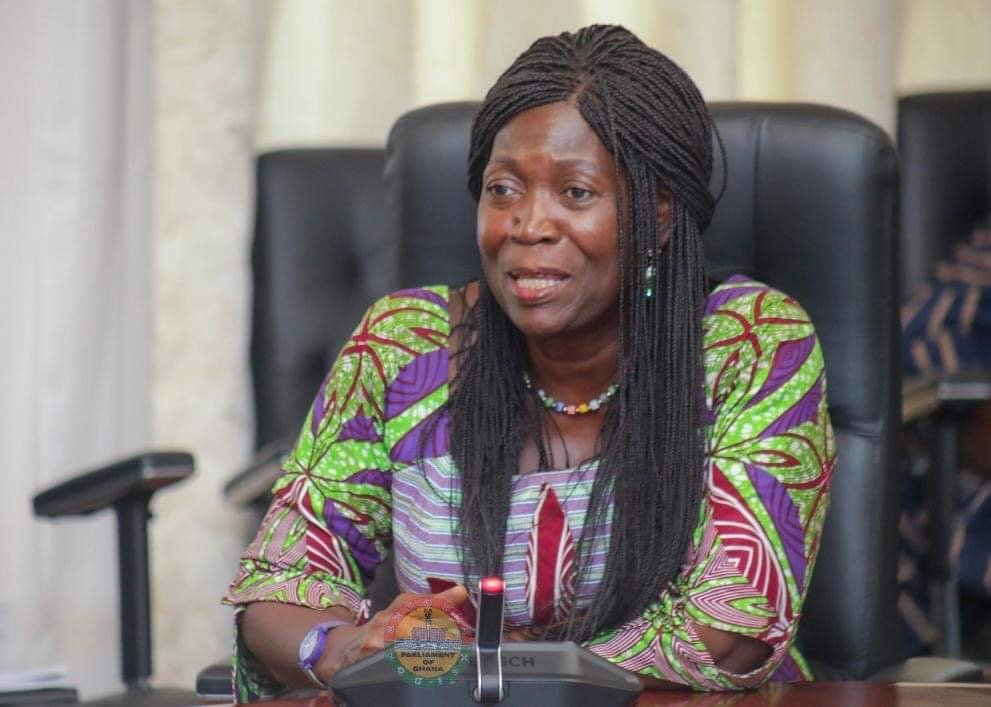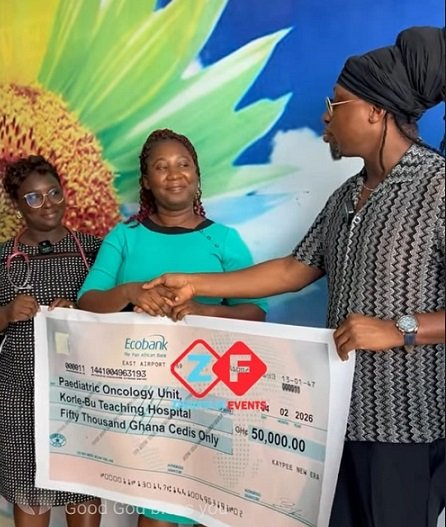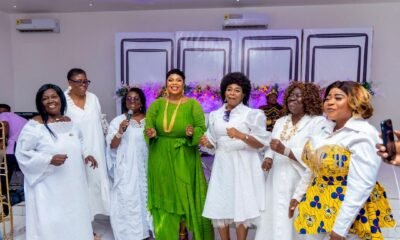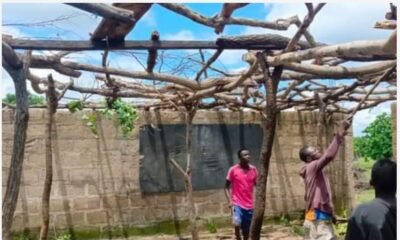News
Don’t hesitate to sign the passed Affirmative Action Bill- Della Sowah tells President Akuffo Addo

Member of Parliament for the people of Kpando and former Deputy Minister for Gender Children and Social Protection, Della Sowah has urged the President of the Republic, Nana Addo Dankwa Akufo-Addo to append his signature to the passed Affirmative Action Bill without hesitation.
According to her, this would be an expression of interest by the President in issues regarding women.
The Parliament of Ghana on Tuesday passed the Affirmative Action, Gender Equity Bill 2024 after many years of consideration.
The purpose of the bill is to effectively address social, cultural, economic and political gender imbalances in the country, stemming from historical discrimination against women and persistent patriarchal socio-cultural systems and norms.
The bill also seeks to ensure gender equity in both the public and private sector.
Speaking to a section of the Media Della Sowah said that she doesn’t want to see this passed Bill end up like the others the President refused to sign.
She called on all well-meaning gender activists to constantly knock on the doors of the president to ensure that he appended his signature to the passed bill.
According to her, regardless of the state of the bill, it is a step in the right direction in addressing issues of inequalities amongst different genders.
The Member of Parliament added that it would ensure that a significant number of women hold key positions in governance, public life, and decision-making, ultimately improving the lives of women across the country.
Della Sowah commended Parliament for the good work done in their quest to create a just society to liberate and elevate women to their rightful place in society.
She also thanked the Speaker of Parliament Alban Bagbin for his guidance and role, adding that without him it wouldn’t have been possible.
By Edem Mensah-Tsotorme
Entertainment
Kwaisey Pee honours promise, donates GHC50,000 to Korle-Bu Paediatric Oncology Unit

Ghanaian music icon, Akwasi Poku Addae, known in Showbiz circles as Kwaisey Pee has honoured his promise to children suffering from cancer.
Ahead of his 25th anniversary event held at the D’ Icon Event Centre at East Legon last year, he made a promise to donate some funds to children suffering from cancer.
True to his word, the musician has recently made a donation of GHC50,000 to the Paediatric Oncology Unit of the Korle-Bu Teaching Hospital.
He told the Ghanaian Times that children are so dear to him, and was optimistic the support would go a long way too impact lives.
The music dynamo also promised that the gesture will not be the last,” it will be a continuous feature from me.”
He also called on Ghanaians home and abroad to lend a helping hand to children suffering from cancer.
According to him, children with cancer have many needs, and a helping hands will go a long way ease the suffering.
“Cancer treatment is very expensive, and leaving that to parents of the children alone, will be a huge burden, with support from you and myself, we can make some changes in other people’s lives,” he concluded.
By Edem Mensah-Tsotorme
News
Dickson Kyere Duah, Kwadwo Poku clash over government funding for World Cup participation

A disagreement has emerged between Member of Parliament for Berekum West, Dickson Kyere-Duah, and energy consultant Kwadwo Poku over government funding for Ghana’s participation in the 2026 FIFA World Cup.
The debate centred on government’s decision to budget about 13 million dollars to support the national team, even though FIFA is expected to provide an appearance fee of about 10.5 million dollars if Ghana qualifies for the tournament.
During the discussion on Joys news , Mr Poku questioned why the government should allocate such an amount when FIFA already provides funds to participating countries.
According to him, the appearance fee alone should help cover some of the country’s expenses.
He argued that if FIFA is giving Ghana 10.5 million dollars simply for qualifying for the tournament, it raises questions about the need for the government to appropriate additional funds.
Mr Kyere Duah, however, explained that the government’s allocation was part of advance planning captured in the national budget even before the final qualification results were known.
He noted that the budget for the tournament period was prepared in November 2025, when it was not certain that Ghana would qualify.
He stressed that budgeting does not automatically mean the entire amount will be spent.
According to him, the funds are meant to prepare the team from the start of the competition period until the end of the tournament.
Mr Kyere Duah explained that if the team exits the tournament early, the full amount allocated in the budget will not be used.
Mr Poku maintained that FIFA already provides financial support to teams for participating in the World Cup and insisted that the government must clearly justify additional spending.
The discussion extended to the role of the Ghana Football Association in managing the national teams.
Mr Poku described the association as a private institution and argued that FIFA also operates as a private body that does not allow government interference.
He explained that FIFA provides funds to teams to support their preparation and participation in the tournament.
Mr Kyere Duah, however, maintained that national teams represent the country and require government support to operate effectively.
By: Jacob Aggrey

 News1 week ago
News1 week agoFinance Minister outlines new gold policies to boost reserves and curb smuggling

 News1 week ago
News1 week agoSam George launches the 2026 Meteorological Awareness Month; presents the 2026 seasonal forecast for southern Ghana

 Hot!1 week ago
Hot!1 week agoBreaking: Footballer who killed two children in Abesim handed lifetime sentence














